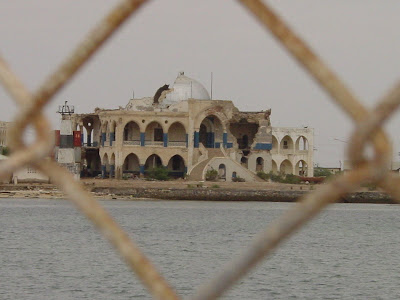
Hello everyone,
Sorry for the long absence. It's been a super-busy few months. I've recently shifted jobs within my workplace, Eug started his new day-job as a freelancer, and we're growing our family. This seemed like a good moment to pause and get back to The Concrete Gardener.
Things are good here in Boston. The title of this post describes three major Concrete Gardener related life changes. Winter, of course, is not something we can control, but something we can escape from... perhaps. The first snow was remarkably early-- 18 October-- and I'm still bitter about that. We're due to winterize the apartment with our heavy curtain, plastic on the air-conditioner (that doesn't come out) and window, and moving into our bedroom. In the midst of this process, we're eagerly anticipating two Major Trips that take us to the warmth-- both trips relatively unexpected. One is home (yeah!) to see the wonderful Julie and Sam get married. The other is to Florida, for awesomely frivolous reasons that don't come often-- so we jumped at the chance to go. I would love to see a killer whale.
In other news, at the other end of the fossil fuel spectrum, we've taken the plunge and given up our car. I read blogs of really skilled, socially conscious types and I'm blown away by the planning and consistency I sense. We're navigating a pretty bumpy path towards more responsible lives-- I'm slow to do something that hurts. That said, the car is probably the change that has most affected our daily lives. The car was a huge variable expense. I now take bus-train-train to work, and I'm learning to enjoy the commute. Hard-core comfortable shoes makes it doable. Evenings need some extra planning to avoid being totally draining, but again, totally doable. Zipcar is still a great option for day trips and weekends.
We're moving into the winter months of our Community Supported Agriculture (CSA) share. Particularly without the car, the share has done an amazing job of filling up our fridge. I'm hoping to keep you updated on some of our winter transitions. We're due for a major simplification to make space in our apartment.
More soon.
P.S. Poor Nick (see below) seems to be close to passing on to spider heaven. S/he's leaving little flies on the web, and doesn't seem hungry. S/he was the best spider anyone could wish for.

















